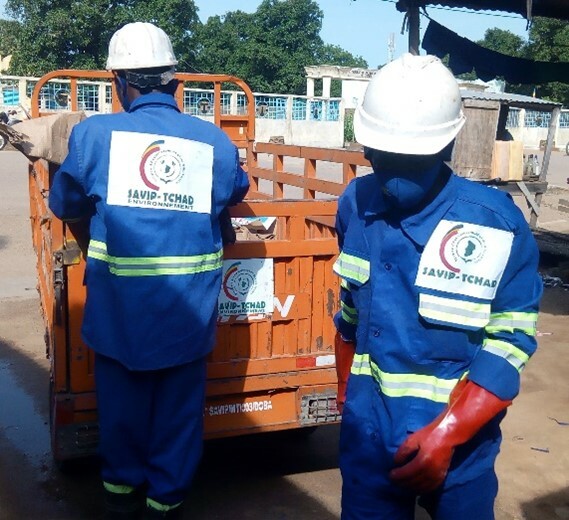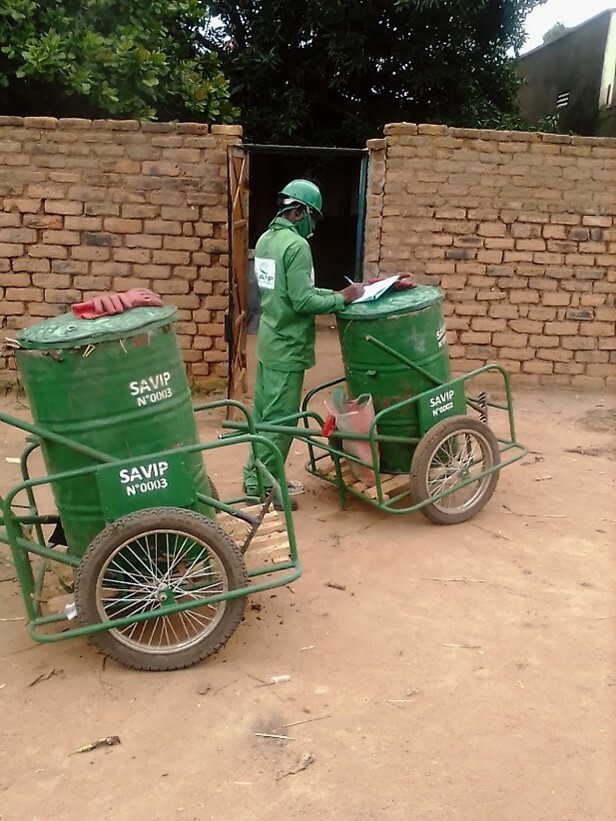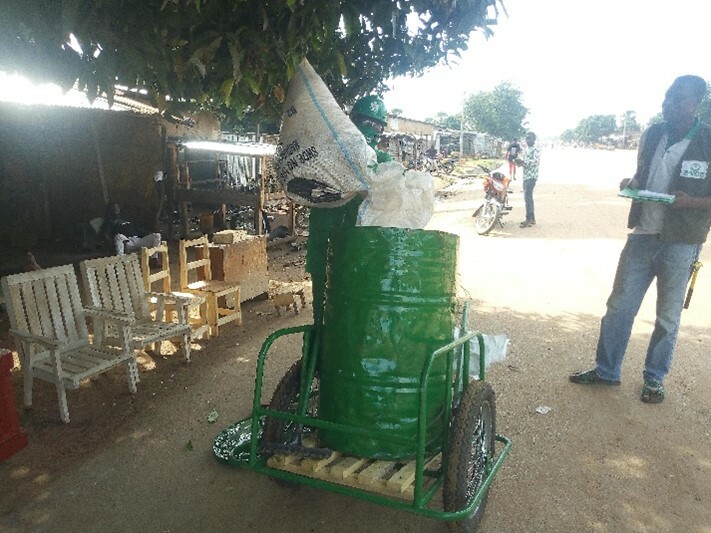Niger Basin Nexus Acceleration Programme // Article Series No. 6: Acceleration of the winning startups of the WEF Nexus bootcamp: SAVIP
Created in 2020, “Service d'Assainissement et de Ville Propre” (SAVIP) is an initiative started by of Ngarnang Djekourbouayom, a young entrepreneur from Chad, in response to the problem of insalubrity faced by Chadian cities, Doba in particular.

This article is also available in French.
SAVIP, Towards an improvement of collective sanitation in Doba-Chad
Created in 2020, “Service d'Assainissement et de Ville Propre” (SAVIP) is an initiative started by of Ngarnang Djekourbouayom, a young entrepreneur from Chad, in response to the problem of insalubrity faced by Chadian cities, Doba in particular. In the framework of the Water Energy Food (WEF) Security Nexus Acceleration Programme, implemented by the 2iE Institute, GIZ is supporting and accompanying SAVIP to optimise its waste collection and management system.

A hygiene service that changes life in Doba
Waste management is a major global challenge for communities in large urban centers. For developing countries and Sub-Saharan African nations in particular, the waste management systems in place are quickly overwhelmed due to cities’ strong urbanization. Through its waste collection service, SAVIP is helping to create a healthier living environment for the population of the city of Doba, in southeastern Chad. The startup provides a solution to the problems of insalubrity and proliferation of clandestine dumpsites in urban areas, the propagation of disease vectors (harmful insects and rodents), the uncontrolled incineration of garbage, and the pollution of soil and water. Hence, SAVIP's initiative contributes to the prevention and reduction of amoebic dysentery, cholera and malaria, three widespread diseases in Central Africa which are associated to insufficient sanitation services and contaminated water sources.

SAVIP's service offers
Starting with a team of 3 people, SAVIP currently employs a dozen men and women for waste collection and transportation activities in the field. In two years, the startup reached more than 600 loyal subscribers, of which nearly 80% are households and 15% are businesses. With modest means of transport (rickshaws and tricycles), SAVIP manages to collect an average of 100 tons of waste per month. Garbage collection rates vary from 1,500 to 5,000 CFA francs per month, depending on the client category (household, business, administrative services, etc.), the frequency of collection and the type of waste.
Thanks to its teams, SAVIP actively contributes to raising awareness among Doba’s population and introduces households and businesses to selective waste sorting operations, aiming at reducing contamination between types of waste and to facilitate downstream treatment operations.
In the short term, SAVIP plans to start recovering the collected waste for the production of compost and green charcoal that can be offered to farmers and households. During the first phase of its acceleration at the 2iE Institute, SAVIP worked on the characterization of the collected waste, the identification of available waste deposits and the implementation of a health and safety policy for waste collection teams.

Challenges and Prospects
During the final stage of its acceleration, SAVIP will benefit from technical training and coaching to effectively process the collected waste and produce green charcoal and compost for Doba population. In the long term, SAVIP will be able to expand to larger cities such as the capital N'Djamena and the city of Sarh.
